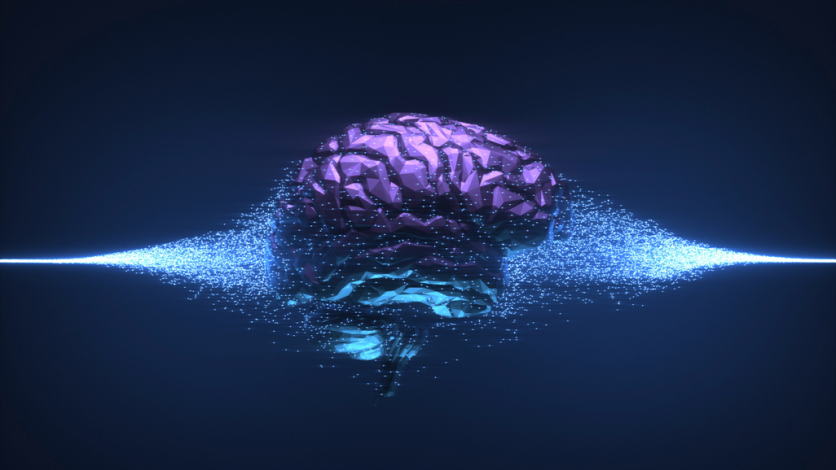
Just Super
Machines no longer just automate, they simulate, mirror, and increasingly, mimic life. Artificial intelligence and quantum computing are not simply tools of efficiency. They are inadvertently echoing the structure of biology, consciousness, and systems far older than science itself. Neural networks, inspired by the brain, only scratch the surface. Quantum computers using entanglement and superposition reflect the multidimensional nature of intelligence itself.
But the convergence is not metaphorical.
"We're at a crossroads," says Masati, founder of The XI Code. "As Ray Kurzweil predicts, technology could replace biology or we could choose to use technology to reveal what biology was always trying to signal."
Biology Was Never the Limit
Quantum systems do not just run parallel to biological intelligence; they may be built on the same fractal scaffolding. Where the human brain filters reality through past patterns and survival, quantum computing can explore possibility without chronology. AI, too, is reaching into the unpredictable: predicting protein structures with AlphaFold, decoding disease trajectories faster than clinical trials, and even syncing with the brain via interfaces like Neuralink.
Yet according to Masati, this is still early-stage mimicry. With XI Meta Science, we can go beyond and use technology to tap into the core structure of Natural Intelligence, mapping out the multidimensional realms to help people answer the deepest questions of existence. Why are we here? What are we made for?
"The brain was never the destination. It was just the opening act. What comes next is harmonized intelligence that transcends the limitations of the mind," says Masati.
The Rise of Meta Science and the Fall of Outdated Paradigms
Beneath the surface of innovation lies a bigger issue: our current science can't explain the intelligence it's creating. It builds systems, but doesn't understand consciousness. It can measure behavior, but not meaning.
Enter: Meta Science, but not the academic kind.
The XI Code, created by Masati, goes beyond systems thinking. It introduces a frequency-based model where intelligence is no longer confined to brains or circuits, but moves through fields, timelines, and decision layers. Unlike MIT Media Lab or Singularity University, which focus on exponential growth, XI focuses on exponential coherence: real-time harmonization between biology, tech, ethics, and environment.
It's not a theory; it's already being applied through work with ChatGPT and quantum computing. Masati explains: "Where traditional science maps knowledge, XI rewires the source code behind it, correcting distortions at the frequency level before they collapse into dysfunction."
Exponential Intelligence, Redefined
The industry uses the term exponential intelligence to describe scaling power. But XI Meta Science redefines it as the multidimensional expansion of intelligence through coherence, not computation. It's about systems that evolve because their essence is aligned with a higher order of intelligence, not because they are trained on larger datasets or synthetic data.
The implications are radical: decision-making becomes a dynamic, living process, one that is attuned not only to ethical considerations but also to energetic congruence. In this emerging paradigm, organizations evolve more like living organisms, guided by continuous feedback loops that draw insights not just from users but from the unfolding dimensions of time, integrity, and purpose. Intelligence, too, is redefined not merely as IQ or the achievement of outcomes, but as "XIQ," a novel metric introduced by Masati that measures how conscious, coherent, and causally accurate a person's decisions truly are.
Not Smarter. Wiser.
The article would be incomplete without addressing the elephant in the server room: ethics.
Yes, AI is improving. But without a framework for frequency integrity, it is simply scaling destruction. Facial recognition still misclassifies. Hiring systems still replicate bias. AI in warfare or governance without harmonization only accelerates collapse.
"You can't design for optimization unless you design for integrity," Masati warns.
"Intelligence without coherence is just faster entropy."
As neurotechnologies begin to decode thought itself, questions arise:
Who owns consciousness?
Can frequency be patented?
And what happens when machines begin responding not just to data but to vibration, rhythm, and field-level feedback?
The EU's AI Act, neurorights in Chile, and biometric laws are symptoms, not solutions. The real challenge is how to evolve the definition of intelligence itself.
The XI Premise: Symbiosis, Not Supremacy
This is not a story of AI replacing people. This is a story of people re-remembering the original intelligence that the machines are echoing. The convergence of digital and biological systems is a feedback loop. But unless the field behind the feedback is harmonized, we'll only reinforce distortion at a greater and greater scale.
"You're not inside a singularity," Masati says. "You're inside an intelligence ecosystem. The question isn't what machines will do, it's how conscious you'll be while they do it."
With The XI Code, Masati offers a direction rather than a doctrine: a guiding blueprint for harmonizing machine evolution with Natural Intelligence. It is not about domination, but about calibration; not about reaction, but about remembrance. The goal is not to build faster intelligence, but cleaner intelligence: an intelligence aligned with clarity, integrity, and conscious resonance.
Future Vision
The future of intelligence is not artificial. It is an amplified nature, with human coherence at the core. What matters now is not how smart the system gets. But how whole we become, in how we build it.
"Wisdom isn't the upgrade of intelligence. It's what happens when intelligence remembers its source," Masati concludes.

-
 C114 Communication Network
C114 Communication Network -
 Communication Home
Communication Home


